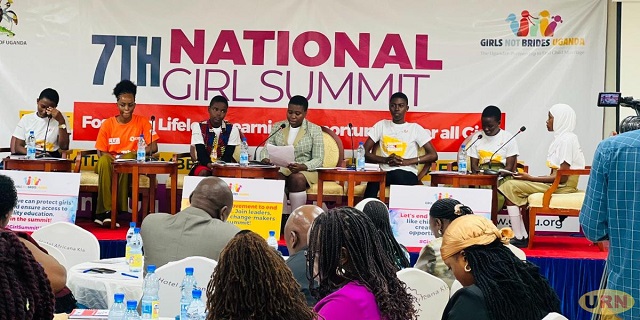
Kampala, Uganda | THE INDEPENDENT | Experts attending the National Girls Summit have expressed concern that despite the push for affirmative action and policies to ensure girls stay in school, many still don’t offer basics to ensure girls stay.
Joseph Sewungu Gozanga a teacher and Member of Parliament says many schools don’t have spaces where girls in their menstruation periods can change or dispose of their pads whereas some cannot afford sanitary pads and therefore decide to stay home every month for the time during periods. He says this continues even as the government promised over ten years ago to offer free pads.
Filbert Baguma, the Uganda National Teachers Union (UNATU) General Secretary says that because of the government’s delay in fulfilling this promise, the body resolved to conduct a campaign in Teso and Western region where they have given free pads to the needy. When they went back to assess school attendance, he says they found absenteeism rates to have reduced among girls.
Baguma says while many think missing school due to menstruation is a rural issue, they have had such cases, especially in the slums of the Kampala Metropolitan area.
Rosette Nanyanzi, a Gender Technical Advisor in the Ministry of Education acknowledged the fact that indeed girls drop out because of pads. She added that although the government has not yet implemented the free pads policy for everyone, they came up with an intervention to offer free pads under an emergency arrangement where senior woman teachers provide one pad to a learner in case they suddenly go into their period while already at school.
However, according to Joyce Nakato the Co-Chair of Girls, not Brides Uganda, a national partnership of over a hundred NGOs advocating for an end to child marriages piecemeal interventions such as this cannot help all the girls in need. She says as a consortium, they had come up with a position paper to guide the government on interventions that will yield gains for girls. She says for instance that they haven’t seen a significant reduction in girls getting married or an increase in those re-enrolling into school post-pregnancy.
Sheikhat Radhiyyah Namakula, the Secretary of Women Affairs at Uganda Muslim Supreme Council says knowing that most of the challenges affecting girls from child marriages to teenage pregnancies arise from mainly the fact that households are poor, she calls for popularizing life skills and urges girls to utilize the long holiday to engage in small businesses which can help them afford things like sanitary pads.
*****
URN
 The Independent Uganda: You get the Truth we Pay the Price
The Independent Uganda: You get the Truth we Pay the Price



